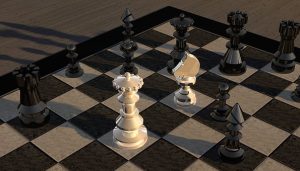It is well known that if everyone folds to you on the button, you should raise in hopes of stealing the blinds. Stealing blinds from the button is considered a good strategy because you only need two people to fold, and even if one of them calls, you will have a positional advantage over your opponents.
Next time when everyone folds to you on the button, don't raise, just call. This will be especially effective if you have already raised from the button a few times and stolen the blinds. Your limp will scare the players in the blinds because it is an unusual move. The blinds will think you have a very strong starting hand, and as a result, one bet on the flop will often win you the pot.
Another advantage of just calling is that if one of the blinds has a very strong hand, you can simply fold if they raise.
This is a strategy to mix into your action arsenal to balance your table image. You don't want to be predictable.
- Defend your Big Blind if you get good pot odds
Some players will defend their Big Blind almost every time. Some players always look for a reason to fold their cards when in the Big Blind.
You should not be predictable. If you are in the big blind and someone raises, decide if there is a reason to play this hand. Even a hand like 8♣-6♣ can be an opportunity to accumulate more chips if you get good pot odds.
Example:
You have 8♣-6♣ and are in the Big Blind. It's the early stage of the tournament. You have 4000 and the blinds are 50-100. A player from middle position, with 3200, raises to 300. Everyone folds to you. What should you do?
Don't make an automatic fold. Calculate the pot odds. The pot is 450, and you need to call 200 more, so you are getting better than 2:1 odds. These are actually quite good pot odds. If your opponent has A-K, he is about a 60% favorite. If he has Q-Q, he is about an 80% favorite.
Your hand is not very bad because you have a suited one-gapper. You have a comfortable stack of 40 big blinds, and most importantly, you have the opportunity to win a very big pot if you hit your hand.
If you have been folding your big blind every time until now, in this situation you are more inclined to call. You don't want to be the player who constantly folds their blinds to raises, as more observant opponents will start stealing your blinds even more often.
When you play in larger poker tournaments, you will notice poker professionals who are famous for defending their blinds with almost any two cards. They do this not because they have strong hands, but because they believe they can outplay their opponents.
You need to observe which of your opponents always defend their blinds and which almost never do. If you encounter those who almost always defend, make a larger pre-flop raise to give your opponent worse pot odds.
Example:
You have 10♣-4♦ and are in the Big Blind. It's the early stage of the tournament. You have 4000 and the blinds are 50-100. A player from middle position, with 3200, raises to 300. Everyone folds to you. What should you do?
This is exactly the same situation as before, except that your hand is very bad. Fold.
Example:
You have 8♣-7♣ and are in the Big Blind. It's the late stage of the tournament. You have 52,000. The blinds are 1000-2000 with a 50 ante. A player from middle position, with 64,000, raises to 4000. Everyone folds to you. What should you do?
The pot is 7500. It would cost you 2000 to call. You are getting almost 4:1 odds. Even if your opponent has aces, it is worth calling and seeing the flop.
- Folding your small blind to pre-flop raises is often the correct strategy
The small blind has the worst position in no-limit poker. Yet, some players feel the urge to defend their small blind because they have already put in half of the big blind. Often, it can be said that they are trying to catch something rather than defend their blinds.
Example:
You have Q♦-9♣ in the small blind. It's the early stage of the tournament. The blinds are 25-50, and you have 2500. A player from UTG (first after the blinds) raises to 150. Everyone folds to you. The pot is 225, and it would cost you 125 more to call. What should you do?
Your odds are slightly less than 2 to 1, but you have a bad hand, in the worst position, against a player who raised from early position. Don't look for trouble and fold your hand.
Additionally, you don't know how the big blind will act. If he re-raises, you would be forced to fold after investing more chips. Of course, some players compound their mistake by calling the re-raise.
Don't get involved. Did you forget that you will soon be in the button position?
Example:
You have Q♦-8♦ in the small blind. You have 2500. The blinds are 25-50. A player from UTG raises to 100. Three players before you call. The pot is 475. It would cost you 75 to call. What should you do?
You are getting better than 6 to 1 odds to call. This is a great spot. Although you don't have the strongest hand now, you can flop a monster. This is a very easy call.






